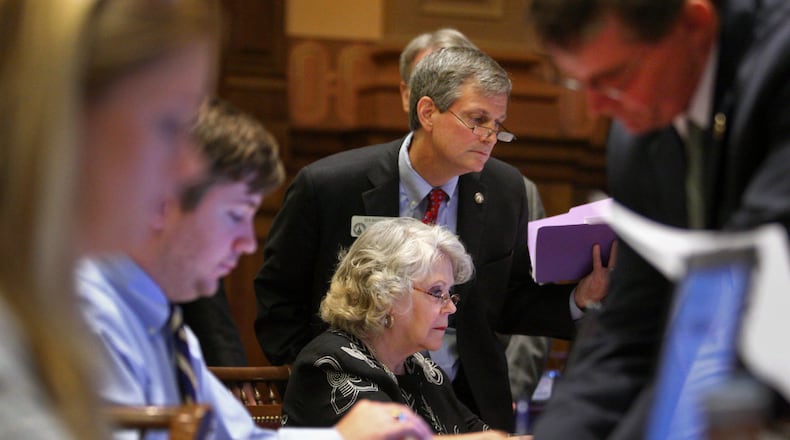As Gov. Brian Kemp prepared last week to endorse a Medicaid waiver, dozens of House Democrats signed a measure demanding a full-on expansion of the program. And this week, they received a new price tag for the initiative.
In an eight-page fiscal note delivered to House leaders, the state auditor estimated the net cost of the expansion would be about $150 million in 2020 and range between $188 million and $213 million by 2022.
Democrats seized on the estimates to build a case for expansion. House Minority Leader Bob Trammell called it the “best investment Georgia can make in healthcare spending.”
“Putting an insurance card in the pocket of nearly 500,000 Georgians for a net cost to the state of $150 million in 2020 should be the first priority for this General Assembly,” said Trammell. “The fiscal note shows what 36 other states have already figured out: It’s time to expand Medicaid.”
The debate over expansion is at the heart of one of the biggest divides in Georgia, and it has dominated healthcare policy discussion over the last few election cycles. An Atlanta Journal-Constitution poll released last week shows that 71 percent of Georgians support expansion.
Since the Affordable Care Act was adopted, Democrats have insisted expansion would provide coverage to hundreds of thousands of needy Georgians while providing struggling hospitals and communities an economic boost. They're joined by a handful of prominent Republicans who see it as a necessity.
Republicans, including Kemp and former Gov. Nathan Deal, have said funding Medicaid expansion would be too costly in the long run, particularly if the federal government ends a matching program. They also say expansion would take state dollars from priorities such as public safety or education.
“We’re not going to put our state at risk by relying on Nancy Pelosi and Chuck Schumer to fund one of Barack Obama’s policies,” said state Rep. Trey Kelley, one of the top House Republicans. “We want to find ways to lessen Georgia’s dependency on the federal government and find a Georgia-grown solution.”
Any debate over expanding Medicaid in Georgia is even trickier because of a 2014 law that gives legislators the final say over expanding the program. Kemp said last week he'd work with legislators to set aside $1 million to develop a waiver to give the state flexibility to spend federal Medicaid funding.
An analysis by the Urban Institute last year estimated that Medicaid expansion would insure 473,000 more Georgians and draw down about $3 billion in federal matching funds. The federal government would pay 90 percent of the costs through at least 2020.
The state's fiscal note, which you can find here, had slightly higher estimates for new enrollees.
It projected that as many as 535,000 newly-eligible Georgians would join the program by fiscal year 2022, once it reaches full enrollment. It also anticipates at least 40,000 people who are already eligible for the program will sign up after expansion.
State auditors say total state spending on the new recipients will range between $273 million and $340 million by 2022 – about $560 per new enrollee. That will partly be offset by a spate of healthcare spending that brings in more tax revenue and cost savings associated with the program.
Georgia State University’s Fiscal Research Center estimates new state revenue will bring in between $46 million to $59 million a year. And cost savings to state agencies are expected to be as high as $68 million annually.
The new fiscal note is in line with a recent estimate by the left-leaning Georgia Budget and Policy Institute, which also predicted Georgia's annual outlay would be around $200 million a year, partly offset by new revenues from the expansion.
About the Author
Keep Reading
The Latest
Featured




